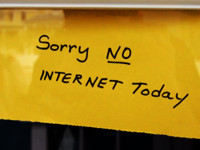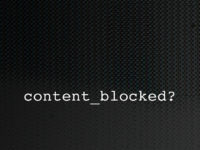When the Bell coalition filed its website blocking application earlier this year, the immediate response from Innovation, Science and Economic Development Minister Navdeep Bains was to point to the strength of existing copyright law:
We understand that there are groups, including Bell, calling for additional tools to better fight piracy, particularly in the digital domain. Canada’s copyright system has numerous legal provisions and tools to help copyright owners protect their intellectual property, both online and in the physical realm. We are committed to maintaining one of the best intellectual property and copyright frameworks in the world to support creativity and innovation to the benefit of artists, creators, consumers and all Canadians.
I emphasized the point in my first post making the case against site blocking, arguing that Canada already has many legal provisions designed to assist copyright owners.











